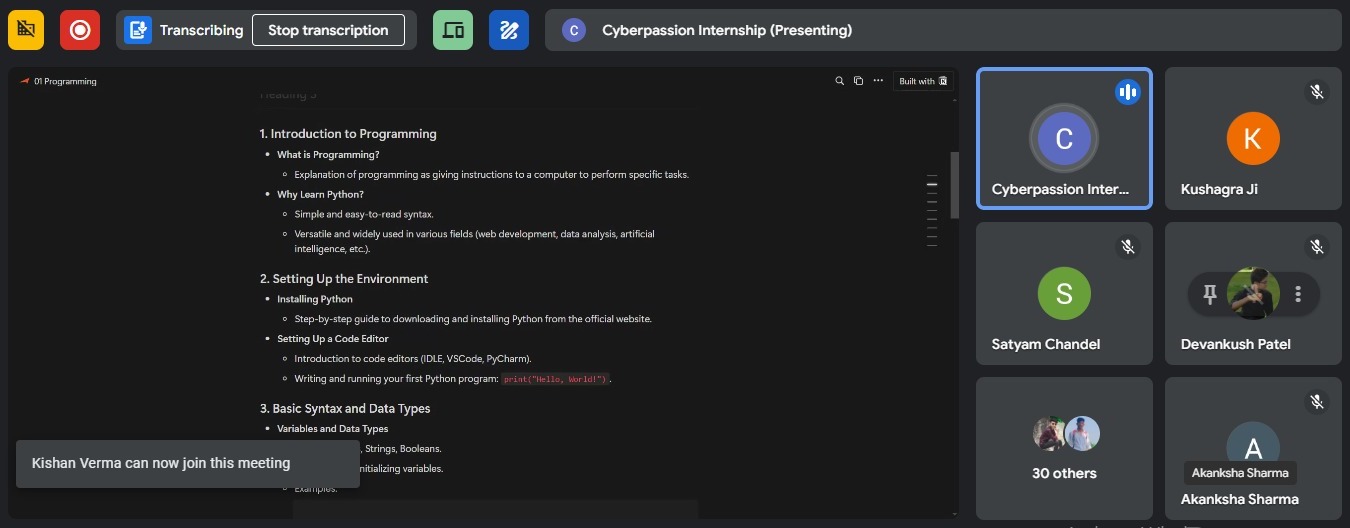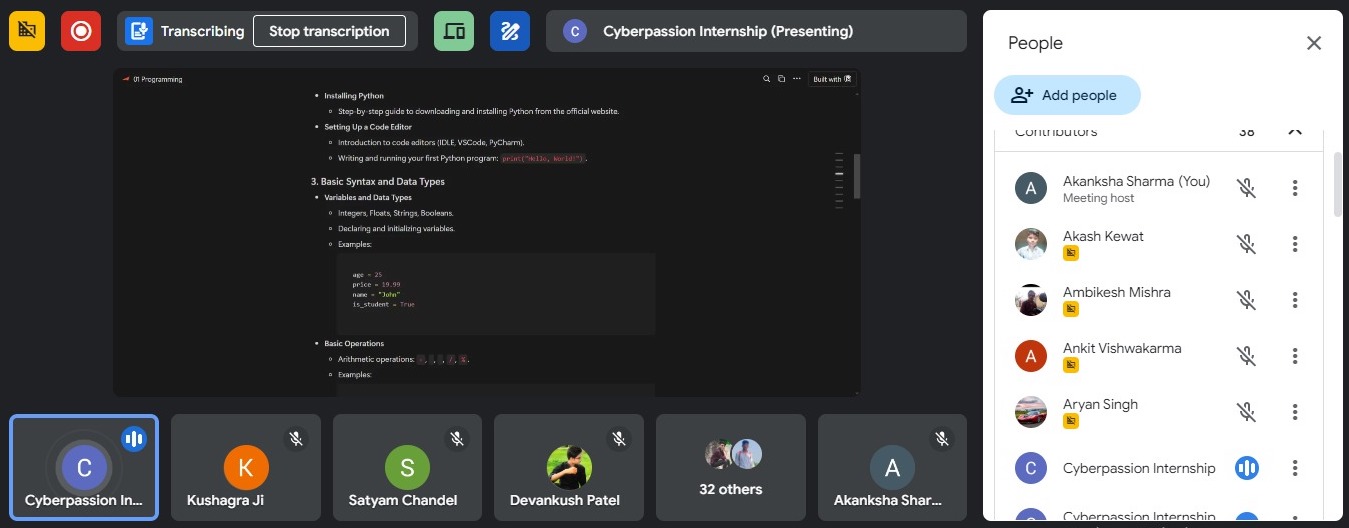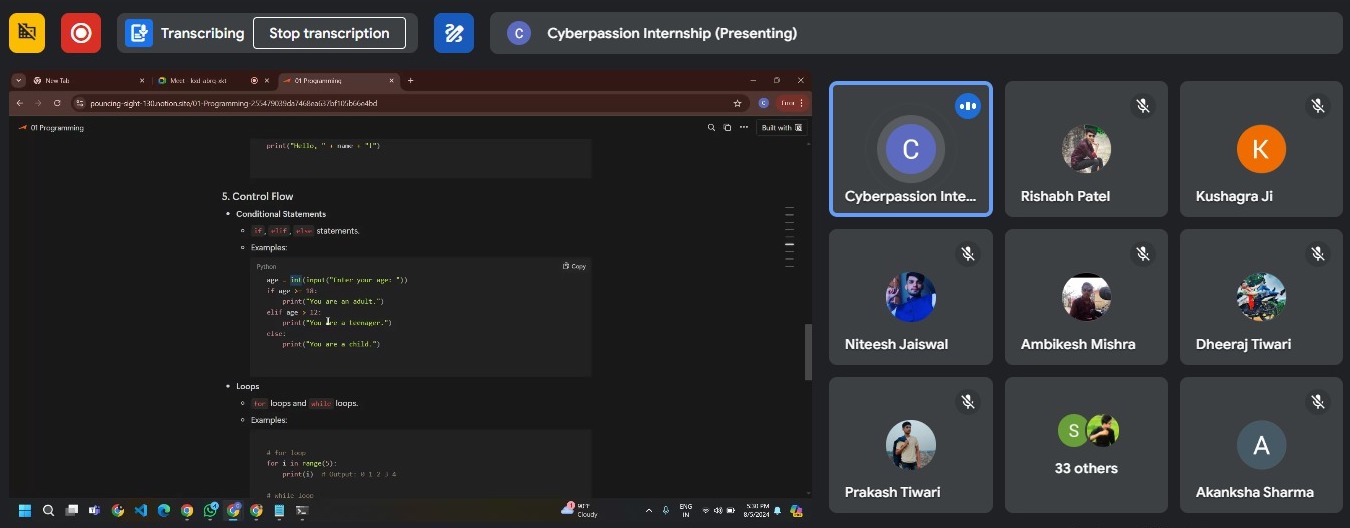CS/IT/EC 2024 Summer Internship Highlights
10 Batches from 09 AM to 07 PM Non Stop (05 August to 04 September 2024)
Week 1 (05 August 2024 - 12 August 2024)
The first week of the CS/IT/EC 2024 Summer Internship was all about laying a strong foundation in programming and web development. We began with the basics of Python, where we explored data types, control structures like loops and conditionals, and functions. We also delved into fundamental programming concepts such as variables, operators, and basic syntax.
In addition to Python, we started our journey into software development with Java and C, web development by learning about HTML and CSS. We learned how to structure web pages using HTML tags, style them with CSS, and even created simple static web pages. This introduction gave us a hands-on experience in designing and building the front-end of a website, setting the stage for more complex projects in the following weeks.
Overall, Week 1 was an exciting start that equipped us with the essential tools and knowledge to tackle more advanced topics in the weeks ahead.



